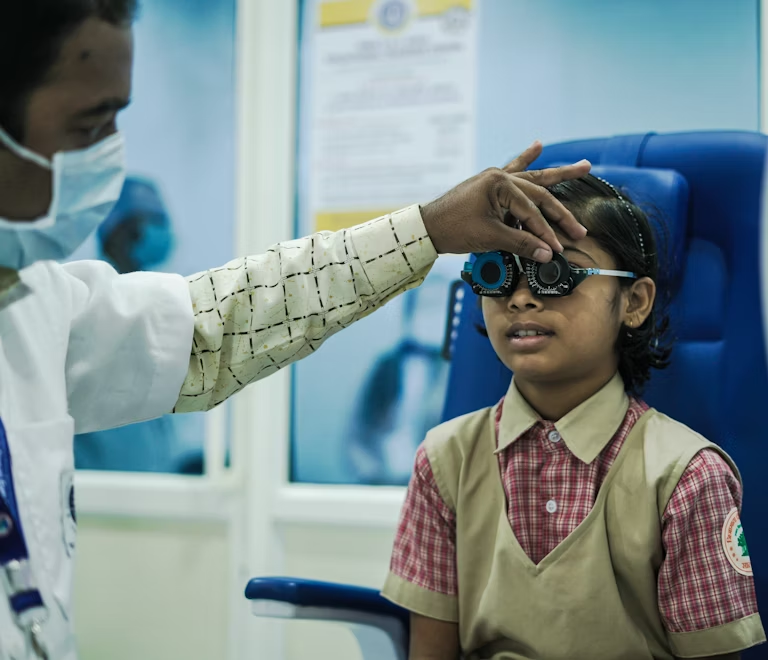- DIAGNOSTICS SERVICES
Diagnostics Services: Ensuring Clear Vision and Eye Health
Our eye diagnostics services are designed to provide comprehensive assessments and accurate evaluations of ocular health. We utilize advanced technology and experienced professionals to deliver superior eye care solutions.

Types of Diagnostics Services
Our diagnostics services include comprehensive eye exams, advanced ocular imaging (OCT, fundus photography), corneal evaluations (topography, pachymetry), glaucoma tests (tonometry, perimetry), cataract assessments, and retinal evaluations for optimal eye health management.
Benefits of Our Diagnostics Services
Our diagnostics services offer accurate assessments, early detection of eye conditions, personalized care plans, advanced technology for precise results, and comprehensive evaluations to maintain optimal eye health and vision clarity.
Importance of Eye Diagnostics
Eye diagnostics are crucial for early detection of eye diseases (like glaucoma, cataracts), monitoring conditions (such as diabetic retinopathy), and ensuring optimal vision health through precise assessments and timely interventions.
Our Commitment to Eye Health
We are committed to maintaining the highest standards of eye care excellence. Our dedicated team of ophthalmologists and optometrists ensures compassionate care and accurate diagnostics to enhance your visual well-being.
- QUESTION AND ANSWER
General Frequently Asked
Question For Diagnostic
We offer a variety of diagnostic tests, including visual acuity tests, slit-lamp examinations, tonometry (for measuring eye pressure), corneal topography, optical coherence tomography (OCT), and retinal imaging, among others. These tests help in detecting and monitoring eye conditions.
It’s generally recommended to have a comprehensive eye exam every 1-2 years. However, if you have risk factors like diabetes, a family history of eye disease, or are experiencing vision problems, more frequent exams may be necessary.
Diagnostic tests can detect a wide range of conditions, including glaucoma, cataracts, macular degeneration, diabetic retinopathy, corneal diseases, and refractive errors like myopia and hyperopia. Early detection through these tests is crucial for effective treatment.
Preparation depends on the specific test. For most tests, no special preparation is needed. However, for certain procedures like dilated eye exams, you may need to arrange for someone to drive you home afterward as your vision may be temporarily blurred.
Coverage varies depending on your insurance plan. Routine eye exams may be covered, but specialized diagnostic tests might require additional coverage or out-of-pocket expenses. It’s best to check with your insurance provider for details on what is covered.

